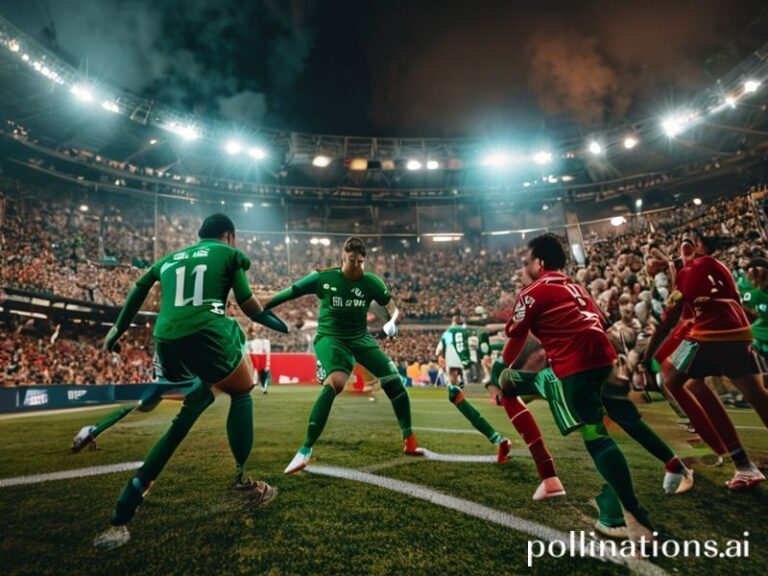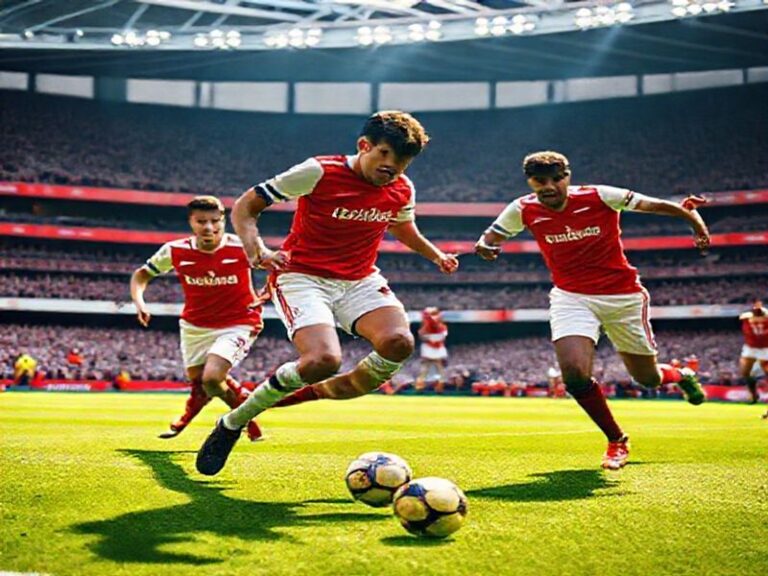Mudryk’s €100M Exodus: How One Transfer Captures the Global Circus of War, Wealth, and Football Fantasy
Mudryk and the Global Theater of Transfer-Porn
By Our Man in the Departure Lounge
KYIV—On a crisp January morning, while half the planet was busy arguing whether the Doomsday Clock should simply be replaced by a livestream of Elon Musk’s Twitter feed, Mykhailo Mudryk was being shrink-wrapped into a Chelsea shirt faster than you can say “financial fair play is a bedtime story for grown-ups.” The deal—reportedly €100 million, give or take whatever Abramovich left in the sofa—was greeted by the usual carnival of thumbs-ups, thumbs-down, and thumbs lodged firmly up the algorithmic backside of the attention economy.
In Kyiv, where air-raid sirens have become the unofficial soundtrack of everyday life, locals joked that Mudryk’s transfer fee could probably fund a couple of extra Patriot batteries, or at least keep the streetlights on for a week. The gag lands harder when you remember that the same week saw a fresh round of Russian missiles auditioning for the role of “unwelcome fireworks.” Still, the lad’s off to London, where the only incoming projectiles are speculative crosses from Reece James. Progress, of sorts.
Zoom out and the transaction reads like a morality play for the late-capitalist age. The Global North raids the periphery for shiny trinkets—sorry, “assets”—while the periphery pockets the cash and prays the roof stays attached. Swap “grain” for “winger” and you’ve got the same old extractive ballet, only now it’s choreographed by super-agents in Gulfstream jets. The IMF nods approvingly; FIFA shrugs; somewhere a hedge-fund algorithm just learned to pronounce “Shakhtar Donetsk.”
Yet the spectacle travels well. In Jakarta, ride-hailing drivers huddle over cracked screens to watch Mudryk’s YouTube highlight reels, soundtracked by lo-fi beats to study/invade to. Lagos sports bars debate whether he’s the next Arjen Robben or simply another expensive hamstring waiting to happen. And in Buenos Aires, where the peso’s doing its best impression of a brick dropped from orbit, fans console themselves that at least their league still produces talent without the polite intervention of oligarch petrodollars. Silver linings, etc.
Chelsea, for their part, have spent the Boehly era assembling a squad so deep it could double as a UN peacekeeping force—though with markedly less peace and considerably more keep-ball. Each new signing is greeted by the fanbase with the tempered joy of a man buying a lottery ticket he already knows is a loser. Mudryk arrives billed as “the Ukrainian Mbappé,” a label as flattering as it is operationally radioactive. The kid’s first task will be to dodge the twin curses of Stamford Bridge: the right-back slot and the club’s medical room, both of which appear to have been designed by M.C. Escher.
Meanwhile, geopolitics keeps intruding like an uninvited plus-one. UEFA still hasn’t figured out how to market a Champions League anthem that harmonizes with the sound of distant artillery. Sponsors, ever the moral barometers, insist their logos be digitally airbrushed out of any shot containing actual war. And somewhere in a Kyiv bomb shelter, a teenager refreshes Transfermarkt to see how much his hero is now “worth,” as though market capitalization doubles as body armor.
The cruel punchline? Mudryk may be the first footballer whose price tag is quoted simultaneously in euros, dollars, and humanitarian aid crates. His every dribble will be parsed for what it means to Ukrainian morale; every missed sitter will be interpreted by Kremlin propagandists as proof of Western decadence. The rest of us will watch, munching nachos, while pretending this is just sport and not a grotesque talent show staged atop a live minefield.
In the end, the transfer tells us nothing new about football and everything we need to know about the era: value is wherever the cameras point, suffering is background noise, and hope ships with a sell-on clause. Someday the lad might lift a trophy or two, and the highlight packages will scrub out the sirens. History will remember the goals; the context, as always, will be left on the cutting-room floor. Until then, we watch, we tweet, we place our bets—because in the modern world, even despair has a transfer deadline.







